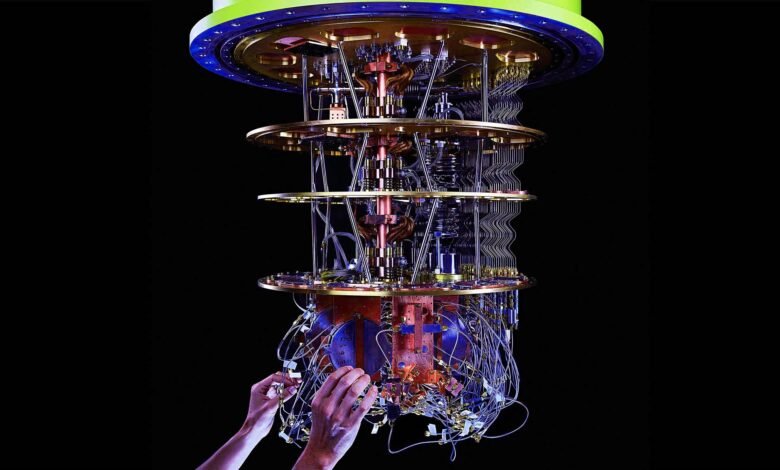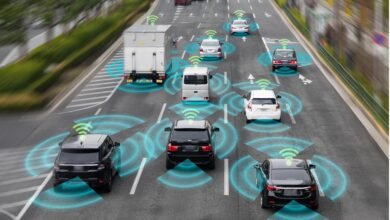How to Build and Use Quantum Computers for Everyday Tasks in 2023

In the realm of technology, the pursuit of quantum computing has garnered significant attention in recent years. Quantum computers have the potential to revolutionize the way we process information, tackle complex problems, and perform everyday tasks. Although still in its infancy, quantum computing has made remarkable progress, and in 2023, we’re on the verge of witnessing its practical applications. This article will guide you through the fundamentals of quantum computing, its real-world potential, and how you can leverage it for everyday tasks.
Understanding Quantum Computing
Quantum computing is not just an evolution of classical computing; it’s a paradigm shift. Instead of using classical bits, which can be either 0 or 1, quantum computers use quantum bits or qubits. Qubits can exist in multiple states simultaneously due to a property called superposition. This inherent ability to process vast amounts of information in parallel gives quantum computers their extraordinary power.
Harnessing Quantum Entanglement
One of the most intriguing aspects of quantum computing is entanglement. Qubits can be entangled, meaning the state of one qubit instantly affects the state of another, no matter the distance between them. This phenomenon enables quantum computers to perform complex operations that would be impossible for classical computers.
Overcoming the Limits with Quantum Superposition

Quantum superposition allows qubits to represent a 0, a 1, or both 0 and 1 simultaneously. This property exponentially increases the processing capacity of quantum computers, making them ideal for solving problems that involve massive amounts of data.
The Potential Impact of Quantum Computing in Everyday Tasks
As we move forward in 2023, the potential applications of quantum computing for everyday tasks are becoming clearer. Here’s how quantum computing can revolutionize various fields:
Advanced Data Analysis
Quantum computers can analyze large datasets more efficiently than classical computers. This capability has significant implications for fields like financial analysis, medical research, and climate modeling.
Optimized Logistics and Supply Chain Management
Quantum algorithms can optimize complex logistics and supply chain networks, leading to reduced costs, faster deliveries, and more sustainable operations.
Drug Discovery and Material Design
Quantum computers can simulate molecular interactions with unparalleled accuracy, accelerating drug discovery and the development of innovative materials.
Building and Using Quantum Computers
While large-scale, fault-tolerant quantum computers are still in the experimental phase, you can already access and experiment with smaller quantum devices through cloud platforms offered by companies like IBM and Google.
Learning Quantum Programming
To leverage quantum computing, you’ll need to learn quantum programming languages like Qiskit or Cirq. These languages enable you to write quantum algorithms and run them on actual quantum hardware.
Quantum Computing as a Service
Several companies provide quantum computing as a service. You can access quantum computers remotely, experiment with quantum algorithms, and gain valuable insights into the capabilities of this cutting-edge technology.
The Road Ahead
Quantum computing’s potential is immense, but there are challenges to overcome, such as error rates, decoherence, and scalability. As we delve further into 2023, expect to witness groundbreaking advancements in quantum computing, opening up new frontiers in various industries.
The Basics of Quantum Computing

Quantum computing operates based on the principles of quantum mechanics, a field of physics that deals with the behavior of matter and energy at the smallest scales. Unlike classical bits in traditional computers that can represent either a 0 or a 1, quantum bits or qubits can exist in a superposition of states, enabling them to process and store significantly more information simultaneously.
Superposition and Entanglement
At the heart of quantum computing are two remarkable phenomena: superposition and entanglement. Superposition allows qubits to exist in multiple states at once, exponentially increasing the potential computing power. Entanglement, on the other hand, allows qubits to be interconnected in such a way that the state of one qubit instantly affects the state of another, regardless of the distance between them.
The Current State of Quantum Computing
While still in its infancy, quantum computing has made significant strides in recent years. Companies like IBM, Google, and startups like Rigetti are actively working on building quantum computers and making them accessible through the cloud. Quantum supremacy, the point at which a quantum computer can perform tasks beyond the reach of classical computers, has been a notable milestone achieved by some.
Applications and Potential
The potential applications of quantum computing are vast. It has the capability to revolutionize fields such as cryptography, optimization problems, drug discovery, and materials science. As we look to the future, quantum computing holds the promise of unlocking new avenues of research and innovation that could reshape entire industries.
Challenges and Roadblocks
Despite the immense potential, quantum computing faces several challenges that need to be overcome before it becomes mainstream. Quantum decoherence, error rates in qubits, and the need for specialized cooling systems are just a few of the obstacles that researchers are diligently working to address.
The Impact on Industries
Quantum computing’s impact on various industries is an exciting topic to explore. Sectors like finance, healthcare, logistics, and artificial intelligence are poised to benefit from the enhanced computational capabilities offered by quantum systems.
Finance and Optimization
In the financial industry, quantum computing can optimize complex portfolios, simulate market behaviors more accurately, and provide quicker solutions for risk assessment.
Healthcare and Drug Discovery
Quantum computing’s ability to simulate molecular interactions can accelerate drug discovery, leading to the development of new medicines and treatments.
Logistics and Supply Chain
The optimization capabilities of quantum computing can streamline supply chains, reducing costs and improving efficiency in the movement of goods.
Artificial Intelligence and Machine Learning
Quantum computing can enhance machine learning algorithms, allowing for faster and more complex data processing, leading to advancements in AI.
Ethical and Security Considerations

With great power comes great responsibility. Quantum computing raises ethical concerns, particularly in the realm of cryptography. The current encryption methods that secure our digital communication could be rendered vulnerable by quantum computers, leading to a need for new, quantum-resistant encryption techniques.
Read more : How to Transition to a Cashless Society in 2023
FAQs
Can I access a quantum computer for personal use?
Yes, some companies offer cloud-based quantum computing services that allow individuals to access and experiment with quantum computers.
Do I need a background in quantum physics to use quantum computers?
While a background in quantum physics can be helpful, it’s not strictly necessary. Many resources and tutorials are available to help beginners get started with quantum programming.
What are the potential risks associated with quantum computing?
Quantum computers have the potential to break current encryption methods, posing a security risk to sensitive data. However, researchers are also working on quantum encryption to counter this threat.
Are quantum computers only for scientists and researchers?
No, as quantum computing becomes more accessible, individuals from various fields, including software development and data science, can explore its potential and contribute to its growth.
What are the future applications of quantum computing beyond 2023?
Beyond 2023, quantum computing is expected to impact artificial intelligence, cryptography, and materials science, among other fields, leading to further innovations and breakthroughs.
Read more : How to Adopt Space Tourism: Preparing for Extraterrestrial Travel in 2023








2 Comments